Movement and alliance building for gender equity in global health
Women in Global Health takes a multi-pronged approach to advance its mission of promoting gender equity in health systems and policies for the majority women (70%) health workforce. Across a number of our core advocacy areas we are leading, building, and convening a range of alliances, coalitions, and working groups to leverage the expertise and resources of our partners, build collective momentum, and amplify our shared messages. By working together, we can achieve greater impact and drive systemic change towards greater gender equity in global health.
In addition to these efforts, WGH also strives to expand its global network of Chapters and to push back the global backlash on women’s rights in health. This continued expansion is crucial in advancing our mission and creating a more equitable future for women in global health.
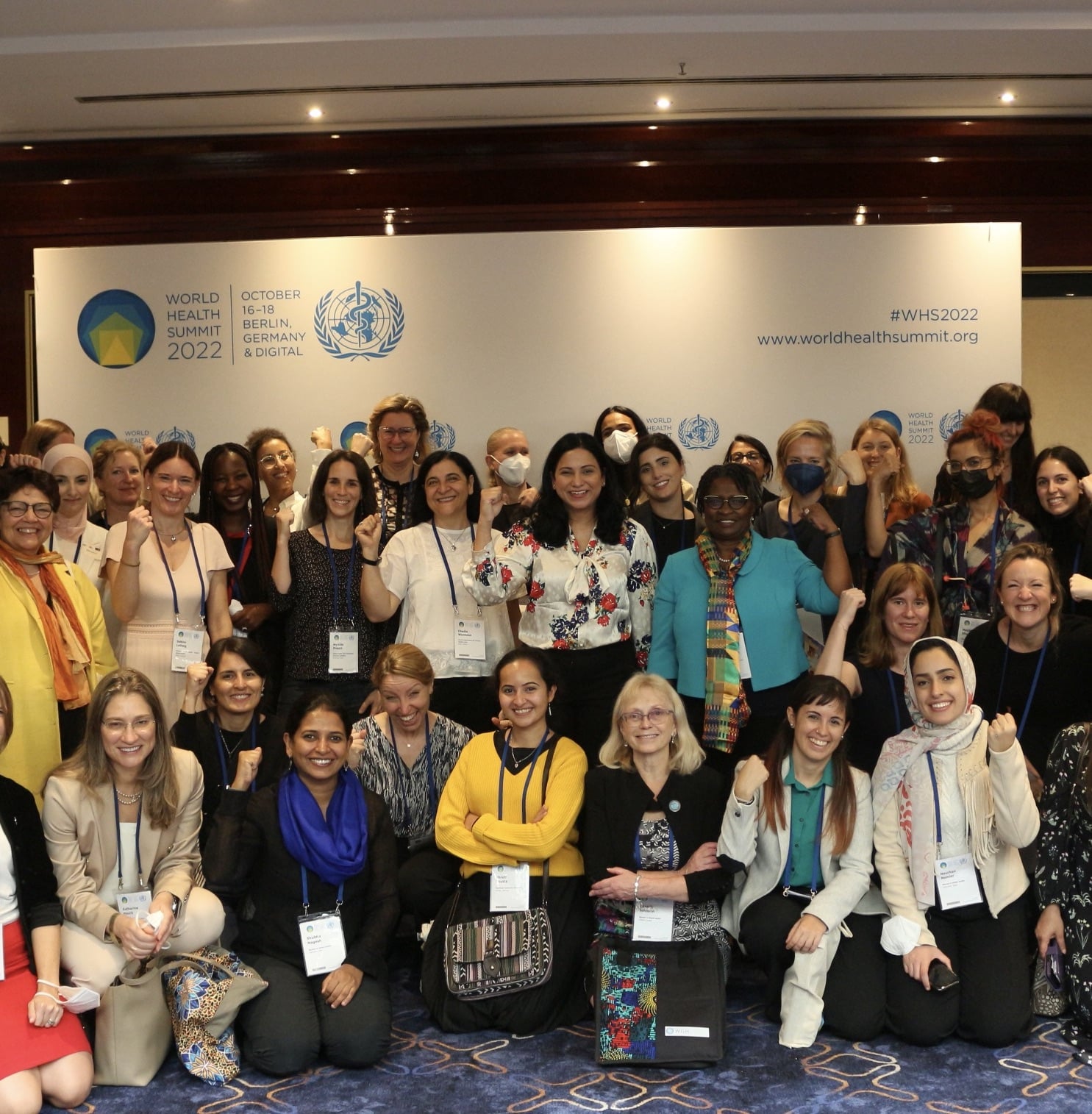
Global Initiative
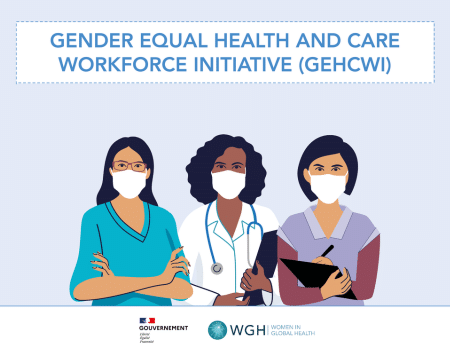
Gender Equal Health and Care Workforce Initiative
The Gender Equal Health and Care Workforce Initiative (GEHCWI) is a partnership which WGH co-leads with the Government of France to promote gender equity in the health and care workforce. The global initiative, which was designed by France, World Health Organization and Women in Global Health was launched in 2021 at the Generation Equality Forum in Paris. It seeks to end informal work, promote equal opportunities and leadership, and eradicate violence and harassment. Achieving gender equity in the health and care sector is essential for building robust health systems, achieving universal health coverage, and ensuring global health security.
Our Alliances
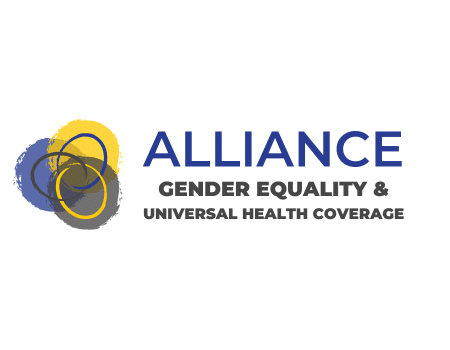
The Alliance for Gender Equality and UHC
The Alliance for Gender Equality and Universal Health Coverage (UHC) is an alliance of more than 100 organizations. It was initiated by WGH with Women Deliver and The International Women’s Health Coalition. It is now co-convened with Women in Global Health, Women Deliver, SPECTRA: Young Feminists Activism, Pathfinder, and YUWA, a youth advocacy group. The alliance advocates for gender equality, women’s rights, and sexual and reproductive health and rights (SRHR) in UHC policies, programs, and dialogue. Initially formed in March 2019 for the 2019 High-Level Meeting on UHC, it continues to drive coordinated advocacy and collaboration for gender-responsive UHC policies. The Alliance is actively engaged in the upcoming 2023 High-Level Meeting on UHC.
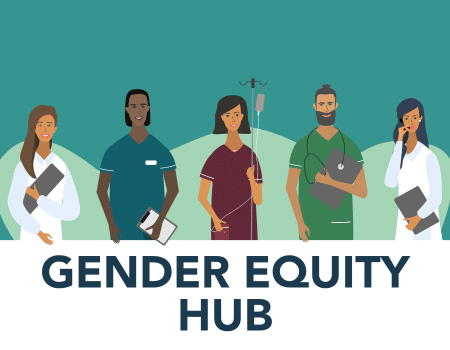
The Gender Equity Hub
In 2017, WGH collaborated with the World Health Organization (WHO) to establish the Gender Equity Hub (GEH) with the aim of accelerating policy action on gender equity and health workforce objectives. The GEH was created through a multi-stakeholder consultation at the 4th Global Forum on Human Resources for Health, in Dublin, and had 280 members at its peak. As co-Chair of the GEH, WGH supports WHO in disseminating messages to researchers, policymakers, and organizations active in the field to catalyze policy research and action. Since 2017, WGH has been supporting WHO’s work in gender equity and the health workforce, including authoring the 2019 WHO baseline literature review: Delivered by women, led by men: a gender and equity analysis of the global health and social workforce
Coalitions
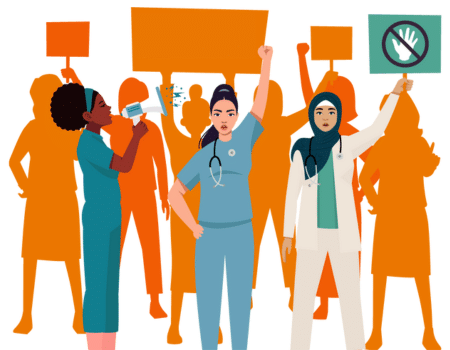
Prevention of Sexual Exploitation, Abuse, and Harassment Coalition
In 2021, WGH, FEMNET (The African Women’s Development and Communications Network), and ARSF (Actions for the Social Reinsertion of Women) collaborated to write an official letter to the World Health Organization (WHO) regarding allegations of Sexual Exploitation, Abuse, and Harassment (SEAH) during the Ebola response in the Democratic Republic of Congo (DRC). The letter, signed by 201 Community Service Organizations (CSOs) from around the world, 67% of which were from the global south and 11 from the DRC, urged the WHO to address and prevent SEAH incidents. Since then, these CSOs have been co-sponsoring and attending events hosted by WGH on ending SEAH in global health.
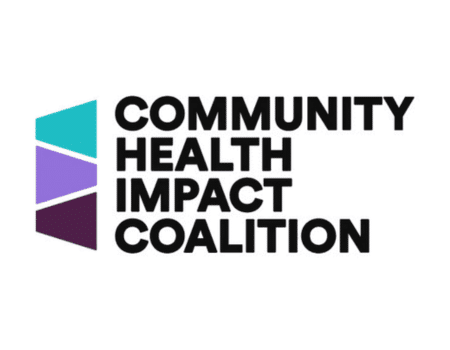
The Community Health Impact Coalition
The Community Health Impact Coalition partners with WGH as an ally to promote global policies at national level, organize a global network of Community Health Workers (CHWs) in advocacy, and ensure CHWs are present in discussions about their work. The Coalition advocates for CHWs through a 40-country movement to receive necessary salaries, training, support and supplies through its networks and partnerships anchored in Ministries of Health.
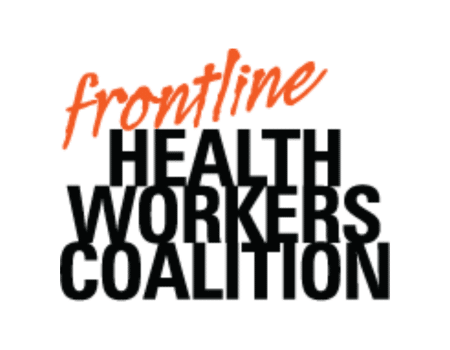
The Frontline Health Workers Coalition
WGH collaborates with the Frontline Health Workers Coalition (FHWC) to advocate for increased US and multilateral investments in frontline health workers in low- and middle-income countries. FHWC is an alliance of organizations working to save lives and promote health, safety, and prosperity around the world. WGH has participated in various activities, including events, open letters, opinion pieces in media, and statements at global dialogues, and participates in monthly calls with FHWC.
Networks and working groups
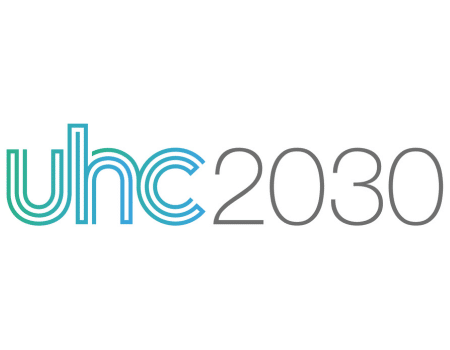
UHC 2030
WGH is a signatory to the UHC2030 Global Compact and a member of the UHC2030 network along with a number of governments, multilateral organizations, NGOs, and a range of organizations committed to accelerating progress towards universal health coverage (UHC) at global and national level. Through UHC 2030’s Civil Society Engagement Mechanism (CSEM), WGH ensures its messages are conveyed in the United Nations High-Level Meeting process. WGH is also a team member of the State of UHC commitment task team and a member of the UN HLM Task Force on UHC of the UHC2030.
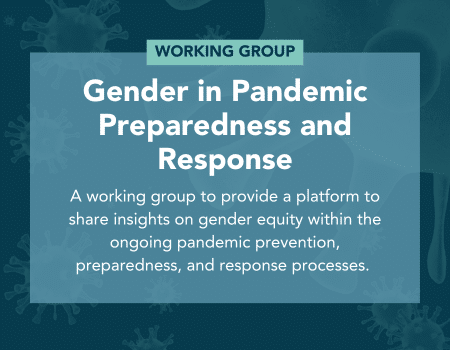
The Pandemic Action Network Gender and COVID-19 Working Group
Women in Global Health and the Pandemic Action Network launched a Working Group on Gender in Pandemic Preparedness and Response. The Working Group held its first meeting on March 21, 2023, and its objective is to provide a platform for members of our two organizations to share insights on gender equity in pandemic prevention, preparedness, and response. The Working Group is co-chaired by Dr. Sumegha Asthana from Women in Global Health, India and Ms. Courtney Carson from the Pandemic Action Network.
